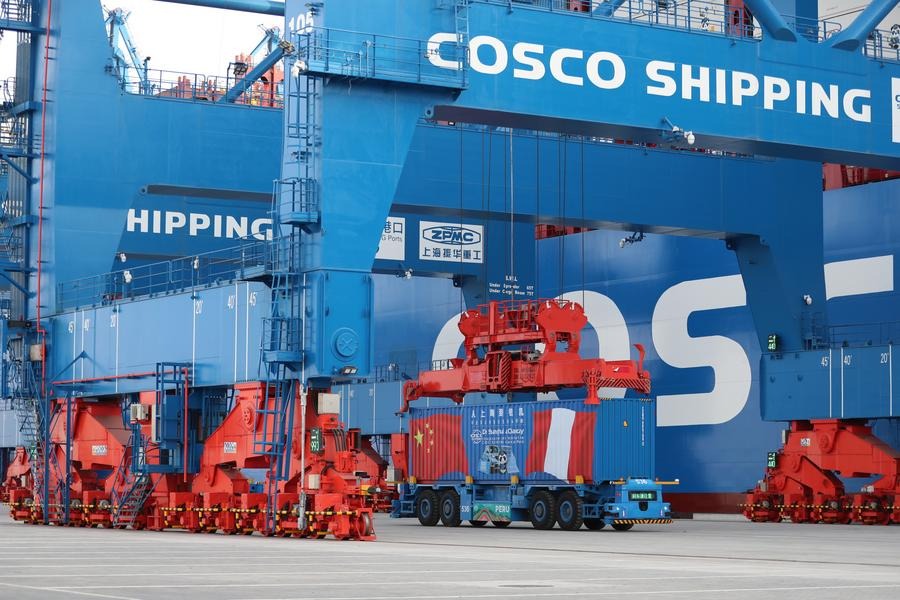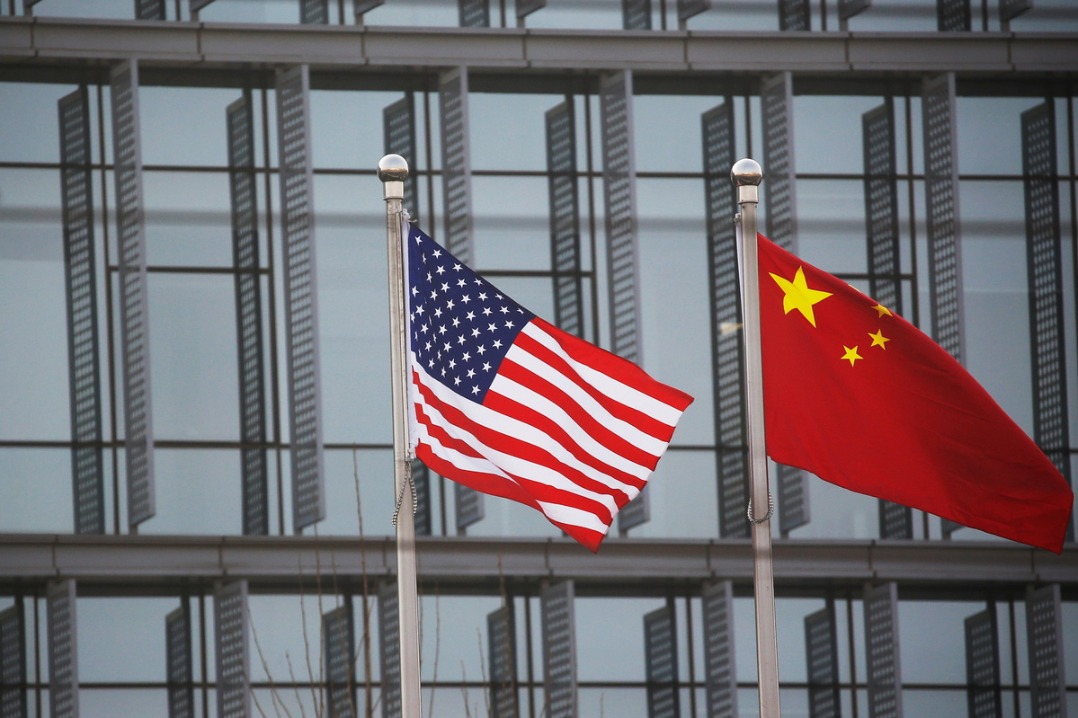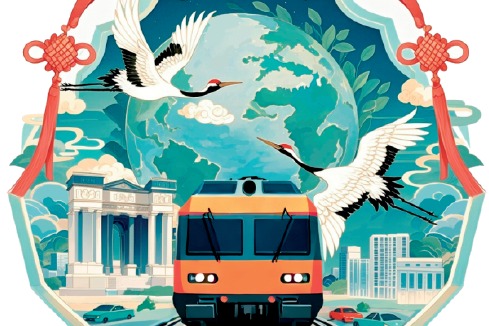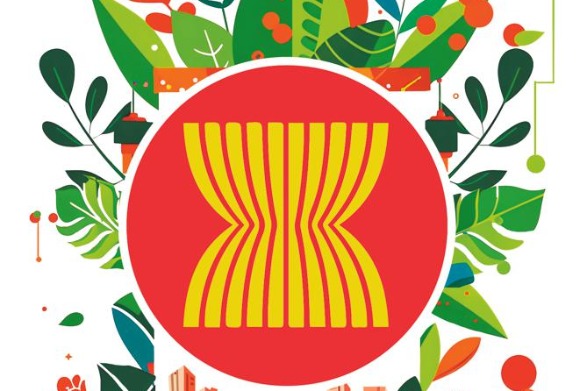Working together, China and EU can improve ties


The intensifying Ukraine crisis and Israel-Palestine conflict have heightened tensions, eroded trust and raised the risk of a nuclear war. The world has come to such a pass because of the use of force and threat by some major powers on the pretext of safeguarding national security.
History tells us that the use of force or threat increases distrust and unilateral sanctions cause mutual harm, instead of resolving disputes. China believes that the security of one country cannot be safeguarded by jeopardizing other countries' security. That's why, together with Brazil, it proposed a six-point plan and established a "Friends for Peace" group to help end the Russia-Ukraine conflict. On Gaza, China has been calling for a permanent cease-fire and full withdrawal of Israeli forces from the Palestinian enclave, emphasizing that the two-state solution is the best way to restore peace in the region.
These chaotic developments have made it all the more difficult for the world to achieve the UN Sustainable Development Goals by 2030. Worse, much of the gains of poverty alleviation has been lost. The World Bank estimates that the COVID-19 pandemic pushed about 70 million people into poverty in 2020, the largest one-year increase since global monitoring began in 1990. As a result, about 719 million people subsisted on less than $2.15 a day by the end of 2020.
To address such common challenges and meet the 2030 Agenda for Sustainable Development, the countries of the Global South have been calling for prioritizing development, while firmly opposing the politicization of trade and economic issues by some countries on the pretext of safeguarding national security.
This is where the importance of the China-proposed Belt and Road Initiative lies. The initiative prioritizes development, has already brought tangible benefits to people in more than 150 countries and regions, and is averse to politicizing trade and economic relations. Proposing 10 partnership actions for the modernization of both China and Africa at the Summit of the Forum on China-Africa Cooperation in Beijing in August, President Xi Jinping, in line with the Belt and Road spirit, offered zero-tariff treatment to about 33 less- and least-developed countries, including African countries.
As part of its pursuit of global peace and prosperity, China submitted a draft resolution at the 79th annual session of the UN General Assembly, saying that June 10 be designated as "International Day for Dialogue among Civilizations", which the UNGA adopted. China's proposal shows it is committed to fulfilling its responsibilities as a major country and promoting global harmony.
In another promising sign, the China-EU goods trade volume reached about $570 billion in the first nine months of this year, while the United Kingdom, the Netherlands, Germany and France were among the top 10 paid-in investors in China.
China approaches its relations with Europe from a strategic and long-term perspective, as it believes that China and the EU are partners, not rivals, and their relationship is underlined by cooperation rather than competition.
Trade frictions, however, have become the biggest challenge in China-EU relations. Of the 184 trade protectionist measures adopted by the EU, two-thirds involve imports from China. In fact, the EU has initiated more than 40 trade protectionist actions against China since October 2023. Worse, the European Commission recently imposed up to 37 percent tariffs on Chinese-made electric vehicles on top of the already existing 10 percent duty. Ironically, the commission imposed the punitive tariffs despite the opposition of some EU automakers, violating market economy principles and international trade rules.
EU politicians should realize that imposing extra tariffs on imported EVs will not make the EU's auto industry more competitive; instead, it will increase the costs of EVs for European consumers and delay the EU's green transition, ultimately hurting the EU's own interests. We hope the European side will work constructively with China to find a solution acceptable to both sides.
On the Ukraine crisis, China understands European countries' concerns. As a permanent member of the UN Security Council, China right from the beginning has been calling for peace talks in an effort to help end the conflict.
And yet some Western countries have accused China of "helping fuel" Russian threat to Ukraine by expanding bilateral trade with Russia. But the fact is, more than 140 countries, including the US and European countries, are trading with Russia. Last year, Russia's trade with the US and the EU accounted for nearly 20 percent of its foreign trade total. And according to a recent report, in the second quarter of this year, Russia overtook the US as the EU's second-largest natural gas supplier.
Despite this, the Western powers are criticizing China for allegedly "building up Moscow's war machine" for just continuing normal trade with Russia, which is consistent with World Trade Organization rules. It is worth mentioning here that China is the largest trade partner of Ukraine.
Since the establishment of the comprehensive strategic partnership between Brussels and Beijing 20 years ago, China-EU trade has increased by nearly nine times, which means on average €1.5 million ($1.58 million) worth of trade takes place between the two sides every minute. Also, EU investment in China has grown by nearly three times, and Chinese investment has increased from virtually zero to more than $100 billion.
Moreover, the China-Europe Railway Express operates more than 10,000 trains a year that serve more than 200 cities in 25 European countries. This symbiotic, mutually beneficial economic relationship between China and the EU and their deeply intertwined supply chains have, among other things, created millions of jobs. We should maintain this win-win relationship rather than engage in systemic rivalry or de-risking efforts.
China and the EU, as major markets, shoulder the common responsibility of acting as stabilizing forces for promoting peace and common development. China welcomes EU countries to join the "Friends for Peace" group to help resolve the Ukraine and Gaza crises.
It is to be hoped that the EU will synergize its Global Gateway initiative with the China-proposed Belt and Road Initiative with an open mind so as to help developing countries boost their economic development. It is also to be hoped that the EU will rise above ideology to work with China in pursuit of common development and prosperity.
The author is special representative of the Chinese Government on European Affairs.
The views don't necessarily represent those of China Daily.
If you have a specific expertise, or would like to share your thought about our stories, then send us your writings at [email protected], and [email protected].

































